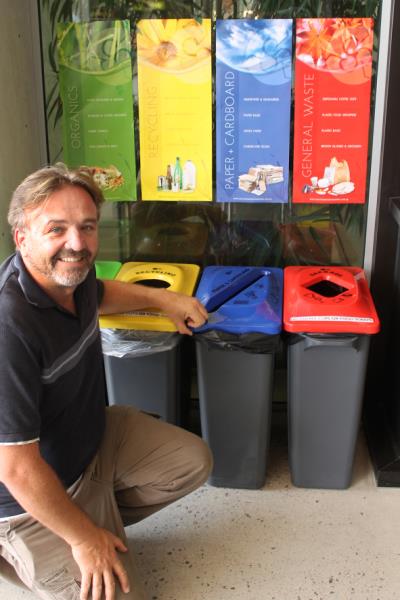By KATIE DE VERTEUIL
THIS Sunday, Noosa residents will join the world’s biggest blackout, when lights are turned off in support of Earth Hour.
A worldwide grassroots movement uniting people to protect the planet, Earth Hour began in Sydney in 2007 and is organised by WWF with the purpose of engaging a massive mainstream community on a broad range of environmental issues.
With the ever increasing impacts of climate change, businesses, individuals and community groups locally are looking at new ways to decrease their carbon footprint and increase environmental sustainability.
The University of the Sunshine Coast is the perfect example of environmental innovation.
Late last year, the institution received national recognition for its innovative waste management system, which has led to a 75 per cent reduction in throwaway waste.
The USC program, which was launched in mid-2013, included the introduction of smaller desk bins for staff and communal recycling stations.
It also involved the installation of a large, on-site composter, which can process up to a tonne of biodegradable waste each week.
In February this year, USC furthered its environmental friendliness by becoming a water refill campus. In partnership with Do Something! and Pro Acqua, the university is showing commitment and leadership to sustainability through providing a true alternative to bottled water with the installation of three water refill vending machines. These machines dispense chilled, micron-filtered still or sparkling water for a substantially low cost to users. USC also provides 18 free aqua bubblers (bottle refilling stations) and over 50 water fountains across the campus.
“This initiative aligns with the university’s goal to reduce waste going to landfill and empowers the USC community to be environmentally responsible through providing a variety of alternative choices,” USC sustainability officer Hailey Bolland said.
“By choosing to refill your water, you can save money and help us to prevent approximately 40,000 plastic water bottles per year going to landfill.
So far the environmental savings since the trial period began in July last year to December have been ten-fold. Two-hundred and forty-nine kilograms of plastic bottles were saved, this the equivalent to the weight of a male African lion.
This totalled to 289kg carbon emissions being saved, the equivalent of driving about 1200km in a large car (road trip from Brisbane to Canberra). Impressed with students and staff reaction to the two initiatives, Ms Bolland wished to thank everyone for their support.








